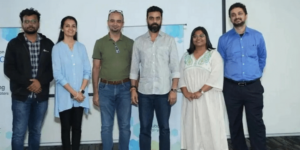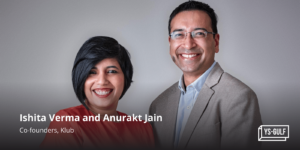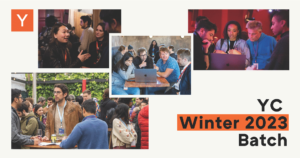“Yaar, it is so good. Why is it not available in the shops here?”
“Ma’am, soon we will make it available at a shop near you.”
Above was a micro excerpt from the conversation between a customer of Kerala Banana Chips and the customer care executive (you are right, that is me).
While ending the call, I just lost the count of how many calls ended with this answer. Though it was fulfilling with the sales surge month over month, one thought was always coming back to my head while I crash on the bed at night — “There is nothing dreadful than a founder who is not monetising the fullest potential of the gold mine with him/her.”
My reason to turn to fundraise was purely demand-based. The market is super big, and demand is even bigger. While double-digit growth every month is complacent, are we achieving its full potential growth?
I entered into fundraising to capture the truly deserving potential for our offerings — Kerala Banana Chips. While every entrepreneur has their version of reason to go for funding, to an extent, we all have one common factor — achieving its fullest growth potential faster and leaner.

But apart from product development and business growth, one of the most crucial for a startup is fundraising, and it is obvious we don’t know where to start.
Out of passion, we create the product, validated it by selling, and motivated by the results, we sell more. Beyond this growth, customers, and new products, the fundraising field is new to us, and hence we are sceptical. And, when we are sceptical, we delay the decision, and we potentially might even lose the opportunity.
So I am writing this for those who are entering into that new fundraising field, those who are looking for their first cheque, and I want to tell you that an early-stage VC is more than just the first cheque. In any way, I could add a little value to your startup on what to expect from early-stage VCs, I would consider this mission accomplished.
Where to start
I started by sending pitch decks after pitch decks. Though I know that sending pitch decks to the ‘contact us’ tab of a potential VC or angel groups websites might not serve its full purpose, I kept doing that, consistently.
I applied to any pitch fest that I came across and started giving pitches. Some filtered us out in the application stage, some in the first round, and a few in the second round.
Sometimes this even makes you think, “Is it worth this much time?” Now close to eight months later, I can say, “Yes. it is worth it! Totally worth it!”
All you need is just one investor to propel you, and to get into the eyes of that one believer, you may need to click on hundreds of ‘contact us’ or may even have to send out more emails.
Enter 100X.VC
Right after giving a pitch at one of the prominent fora in my home town, I received an email that 100X wants to talk to me. I was excited. One meeting leads to another and then to another, and another.
The screening process of 100X was of multiple levels. When the VC was asking for more data, I was blindly sharing all that was available. Finally, after four rounds of e-meetings, here I am, sitting in their Mumbai office, between the COVID-19 pandemic, awaiting my final lap of pitch fest (or is there any more coming?)
The learnings
100X.VC dissected every part of the scale-up model we had planned and asked us why we want to proceed in a specific way, and not the other way? Why this model, why not the other model. Why offline sales?
Those 40 minutes of the meeting gave me much more clarity on the path forward than we had envisioned by ourselves in the last two years.
I hardly knew what was awaiting was a sprint of real transformational events through a series of masterclasses they offer. When we talk about an early-stage investor or a seed-stage investor, they offer more than funding. I am not sure if many people are aware of the real deal with 100X. For startups, 100X’s masterclasses are the real deal.
I remember searching for an industry specialist for getting some guidance for a lot of blind areas where we fumbled, but when your investor offers it in a structured manner, that too one-on-one with industry veterans, you may want to pinch yourself to verify if this is real.
All of a sudden, we had direct access to a lot of people, and they are available to address your queries instantaneously. Sessions after sessions, our confidence was getting stronger and our vision getting clearer. There are two reasons for it.
First, when an industry person talks about what we have envisioned for execution, it confirms our thought process was right. That gives us confidence that we are on the right path. Second, when they share their experience, we see ourselves through that experience, and we can expect what possibly could come up and be prepared.
Not even a single session passed without a great takeaway, and it might be a little overwhelming for a startup in the early stage. I couldn’t imagine that a person like Mitesh Shah was explaining the pricing strategy.
“If you start discounting, then that develops into a habit… Have a mid to long-term plan, especially for pricing,” he said.
When we designed our pricing, we also outlined our plans for the next 18 months in terms of pricing for each SKUs. This boosted our confidence further.
The masterclasses cover various verticals of a startup. We have product development sessions, where Venkat Rajan talks about the importance of not overdoing your solution or ensuring you are not solving the wrong problem.
Shanti Mohan’s sessions brought in a completely new perspective for the hiring process. We saw a profusion of information in that particular session.
“Hire like a startup… Evaluate on potential, measure on attitude, and hire for skill,” she said.
While I introspect on that, I realise, since founders work 14-15 hours a day, it will be a complementing to find someone who brings equal work ethics to the table.
In fact, these sessions are a great way to validate your scale-up plans. Giri Giridhar helped us verify that a higher gross margin gives flexibility and validates our hypothesis.
“Allow everyone to be brutal about what works and what not works with your business,” he said.
The masterclasses also help redefine your communication with the consumer. I cannot thank Ambi Parameswaran enough, as he listens to each pitch and understands the business, and prompts us to think in terms of brand positioning. That impact was huge. Ambi, you play a crucial role in bringing more clarity to our brand positioning.
We also had a highly candid and pragmatic session by Vikram Chachra. Now, I tell that story to everyone — “India has a hero culture; so be that hero,” and, of course, the importance of getting rid of all the frictions.
Funding lessons
Entrepreneurs know the business or product aspect well. However, the fundraising will be complete only when the entrepreneur starts thinking like an angel investor or VC, and why should an investor invest in the startup?
Understanding how investment groups work will help a startup founder to appreciate the efforts investors put in. When Ravindra Krishnappa outlined the VCs story and how they work, that prompted all of us to realign ourselves.
While Vishesh Rajaram reinstates the point that successful companies hire really well, he reminded us that we need to hire twice better.
The fundraising session was highly informative for startups starting to raise funds. Our session with Japan Vyas was very insightful in understanding when to raise funds and how much. His suggestions on fundraising are very strong. He said,
“Raise money when it is available and not when it is needed. More money never killed anyone.”
All the insights and key points for pitching were gold — understanding your target listener, the importance of the first few minutes of your pitch, and controlling the narrative. I am sure an entrepreneur in his/her starting phase will not be able to hear directly from an investor if there were no master sessions.
Can you imagine getting to meet someone like KRS Jamwal? While that is a distant dream, I can’t explain how much elated we were when talking to KRS Jamwal, listening to his viewpoints about our business.
Investors have a thesis and a framework in their mind for a startup evaluation. From an investors standpoint, Sajith Pai outlined a great framework.
What is your ‘Reason to play, reason to win, brand persona, and GTM?’ Successful pitches create hooks in investors’ minds for each of these verticals.
Conclusion
While I am writing this, I realise how much we have transformed in that span of a month. All you need to have is an open mind for learning, flexibility in making necessary changes in your business, and these master sessions will do the magic.
While these masterclasses were transformational, getting ourselves to the next level — which is the pitch day and the process towards that — was a great example of teamwork.
The entire team of 100X.VC was working together with the founders — multiple levels of screening, sitting with us to make our business plan better and outlining the execution plan. I was quite surprised that the whole team was ready, even at late nights, with an answer for any questions or doubts we had.
Now we are entering into the next phase of growth, and I can proudly claim that our organisation is all set for achieving its real potential.
Small reminder, Yes, it is tough to get through the screening process or getting the attention from 100X, or similar early-stage startup investors. However, ask yourselves — are you doing the right things for your business that gets the attention from early-stage VCs?
If so, you are only half done. I would urge startups to keep applying to all those ‘contact us’ or pitch fest coming in your way. One VC is sufficient for your startup to propel. Just one.
Thank you, 100X.VC for giving us the full throttle for our growth.
Thank you, Sanjay, Ninad, Yagnesh, Shashank, and Vatsal.
Disclaimer: Views represented in this article are that of the author and do not represent the views of YourStory. This article was originally published on LinkedIn.

![You are currently viewing [YS Learn] How Kochi-based startup Kerala Banana Chips started its fundraising journey with 100X.VC](https://blog.digitalsevaa.com/wp-content/uploads/2021/02/165-VC-funding1552277843560.jpg)

![Read more about the article [Funding alert] SaaS startup for SMEs, TranZact raises $7M in Series A round](https://blog.digitalsevaa.com/wp-content/uploads/2021/12/TranZact-19-1639587229810-300x150.png)






